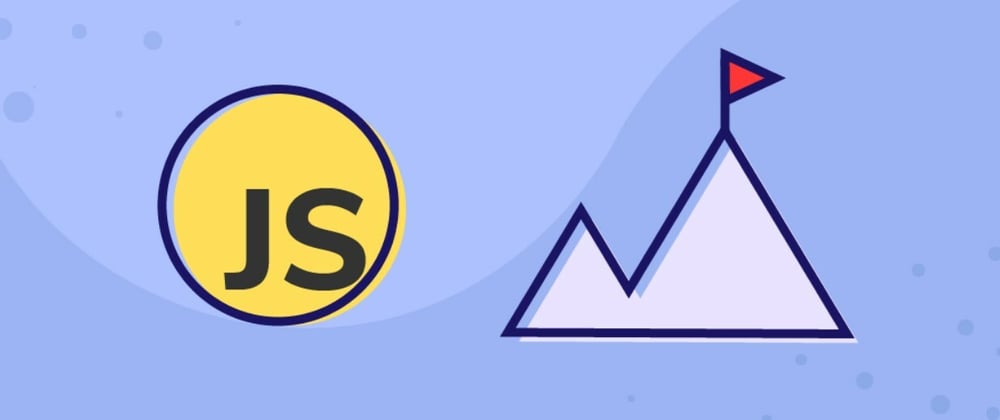Demand continues to grow for web developers across industries even amid hiring freezes at tech companies, so it's a great time to learn to build websites and web applications. Working in web development is a worthwhile and attainable goal, whether you want to become a front-end developer, back-end developer, or full-stack developer. Today, we're focusing on the road to a front-end developer career. If you're interested in contributing outstanding interfaces, interactivity, and user experiences to the modern web, then the front end could be for you.
We've already mentioned one major reason to weigh front-end web development: the growing demand for these professionals. In addition, front-end developers can:
- Earn great wages
- Work with evolving, cutting-edge technologies to solve problems and build slick websites
Beginning any new career requires research and analysis. To help you with this phase and subsequent steps, we've written this roadmap, which will:
- Unpack major questions you may have about this career
- Provide structure to guide you through a process that can be filled with uncertainty
- Share additional resources related to front-end development
Bite-sized guide: We've written about becoming a front-end developer before, in a shorter article about getting started. Today, we'll go beyond the fundamentals and give you a deeper playbook of information to consider and skills to master.
No matter how you envision your career unfolding, this new roadmap should offer something that resonates. We expect you'll have a better idea of how to become a front-end developer by the time you've finished reading.
Let's go!
We'll cover:
- Steps to becoming a front-end developer
- How long does it take to become a front-end developer?
- Requirements to become a front-end developer
- How much does a front-end developer make?
- Your next steps to becoming a front-end developer
Steps to becoming a front-end developer
First of all, we know that the path you'll take will differ from any other. Your existing knowledge and previous experience will determine how you reach your goal of becoming a front-end developer, and your process will be unique. But there's also often overlap among developers' professional paths, and we'll explore those similarities.
Considering other roles? We've created additional roadmaps for getting into the tech field: how to become a software engineer, how to become a back-end developer, and how to become a full-stack developer.
Step 0: Understand front-end development
We want you to be sure the role of front-end developer truly suits you. To that end, we'll go over the differences between front-end vs back-end development now.
As a front-end developer, you'll specialize in building user interfaces (UI), interactive features, and anything else that your web apps do in plain sight. This is referred to as client-side development because it concerns what users see and do on their devices, known as the client. On the other hand, back-end developers specialize in things like displaying information dynamically on those devices, which involves the transmission of data from databases on distant servers. So, this work is known as server-side development. Of course, working websites require quality code and competent coders on both sides of this division, and some people become full-stack developers to take on responsibility for everything involved.
Every path in web development requires substantial training, with certain skills and technologies forming the basis for further specialization. After we cover the remaining steps in this process, we'll detail the skills and other requirements that front-end developers need to be successful. But even before pursuing specific skills, all aspiring developers need to work on something more fundamental: a career plan.
Step 1: Make a plan
Becoming a front-end developer starts with making a plan, and one of the biggest decisions you'll face is how you'll acquire the skills and knowledge you need to succeed in this field.
Unlike many back-end and full-stack developer roles, front-end developers don't necessarily need a degree in computer science or a related field. Much of the work you'll be doing depends on skills you can learn and practice in a coding bootcamp, a college certificate course, or on your own. If you already have a degree in a non-CS field or have other reasons not to pursue a degree, an alternative option could make the most sense. That said, completing a CS degree will certainly provide a strong education and solid preparation for a front-end career.
Common advice: If you don't hold a CS degree, you may be looking at less senior roles when you first join the industry. These might have titles like junior or associate developer.
Timeline: Don't rush through this step. We can't prescribe the amount of time you should spend on it but consider that whatever you decide now will shape the course and length of your journey.
Step 2: Get an education
As mentioned earlier, your education choices basically come down to earning a CS degree or pursuing an alternative option. Let's consider the strengths and weaknesses of various approaches you can choose.
Time estimate: Plan to spend 12 weeks to six years getting your education, which doesn't include the application process.
Step 3: Get real-world experience
It's understandable, though unfortunate, that employers might hesitate to hire developers without long track records. If you're searching for your first developer role, you may be lacking in that kind of experience. What can you do to establish yourself en route to your first job? For starters, you could:
- Get an internship (and take it seriously!)
- Look for hackathons to compete in with friends or alone
- Do your own coding projects and get involved with open-source work
Take advantage of any resources your program provides if you're in a university or bootcamp setting. Otherwise, take some initiative to search out these opportunities, while studying up on:
- How to build your brand
- How to polish your resume
- How to plan coding projects
- How to make open-source contributions
While working through this step, start building a portfolio of your code and finished projects. You can show these off later during your job search.
Time estimate: You can try juggling these activities while getting an education or plan to spend several months on them afterward.
Step 4: Earn a certification (optional)
Earning a professional certification is rarely a waste of time. However, some certification providers want to see work experience from prospective candidates. So, you may have to wait until you've worked in the field for a while to do this.
While there aren't many certifications geared toward front-end developers compared with other specializations, you can always pursue a general software development credential. Some of these include:
- GIAC Certified Web Application Defender (GWEB)
- CIW Web Development Professional
- Certified Secure Software Lifecycle Professional
Time estimate: If the certification you're targeting requires previous experience in the field, this step could take you several years, including a period of months to prepare for the exam.
Step 5: Prepare for your job search
Don't apply to job listings impulsively just because they're easy to find online. If you spend some time getting organized first, you'll conduct a more productive search.
- Make a project portfolio: Remember those personal and open-source projects we suggested? Now's the time to get your achievements ready to share. Storing your code in GitHub repositories as you write it will simplify this process, and free GitHub accounts are available. (Using that platform will also give you practice with version control!)
- Get interview ready: You can find and study resources for popular coding problems, preparing for technical interviews, and behavioral and soft-skill questions.
- Network: Making connections with professionals and companies can provide insights into applying for jobs, interviewing, onboarding, and advancing your career.
Time estimate: Don't breeze through this step but also don't overthink it. A few weeks or months should be enough time to prepare. (You'll also want to keep your portfolio and network up to date as you continue in your career.)
Step 6: Search for front-end developer jobs
Starting your job search is a significant step. Consider how far you've come to reach this point.
The internet is your friend here. Indeed, Glassdoor, Dice, and Zip Recruiter are all reputable sites where you can search for jobs. Staying on top of the status of applications you've submitted will be easier if you track them in a document.
Time estimate: With hiring freezes in place at many tech companies, your search could last for several months. When you do get a response from a recruiter, prepare yourself for an interview process that can last multiple rounds and up to six weeks. If you don't hear back right away or get turned down outright, try to keep some perspective. Many successful job searches start with rejection. Repeatedly sitting for interviews will provide valuable practice for the day when you secure a job offer.
How long does it take to become a front-end developer?
Joining the ranks of front-end developers might take you three months to six years. Everyone's timeline is unique and can be affected by factors like:
- Existing skills and knowledge
- Previous employment and other hands-on experience
- Educational background
- The seniority level targeted
- The health of the job market
Under one scenario, where you already have extensive skills, experience, and a CS degree, you might get hired as a front-end developer after a few months of searching in a healthy market. Under another scenario, where you haven't established that background yet and the market is cooler, the road ahead could take several years.
We've noted that how you attain your technical education will heavily influence your timeline. We've also pointed out that employers may be less concerned about CS degrees when hiring front-end candidates than back-end or full-stack developers. You could take advantage of this and attend a coding bootcamp or learn independently to shorten your timeline. That said, we don't want to discourage you from pursuing a CS degree if it fits your interests, budget, schedule, and obligations!
Keep one more thing in mind when considering this question of time: you'll need to account for your job-search preparations, the search itself, and ensuring you've checked off the requirements to become a front-end developer. We'll discuss those requirements next.
Requirements to become a front-end developer
You'll need relevant education and training, hands-on experience, and front-end skills to become a front-end developer. Your particular career aspirations and your background will dictate what you need to do to satisfy these requirements.
Education
You're probably familiar with the options for getting an education by now. Remember: whether you invest in a CS degree or choose another path is less important than building and demonstrating mastery of the knowledge you'll need on the job.
Hands-on experience
A lack of previous experience in web development could slow you down, but as we've noted, there are ways to add experience to your resume beyond holding a traditional job:
- Complete a tech internship: Learn how to contribute in the workplace while enjoying more guidance and less pressure than in a regular job.
- Software development certifications: Prepare for and pass exams on relevant topics to demonstrate mastery and a commitment to the field.
Technical skills
You'll gain proficiency in front-end development skills as you work through your education. Rather than relying entirely on your teachers to train you, however, adopt the mindset of a self-taught developer and make continuous learning a priority.
You should try to become familiar with the following technologies and skills, listed in a rough sequence, as you progress in your front-end journey. Don't be overwhelmed! This list is long, but you don't need to learn everything it contains before finding your first job. In addition, many of these skills and technologies include multiple examples in parentheses, and you don't need to master them all. For instance, if you're focusing on the React framework because of your employer's tech stack, you shouldn't prioritize learning server-side rendering tools for Vue.js or Angular (Nuxt.js and Universal, respectively).
- Logical reasoning
- How the internet works (e.g., clients, servers, networks, webpages)
- HTML, basic CSS, and web development fundamentals
- JavaScript
- Graphic design (e.g., Figma, Photoshop)
- Version control systems (Git + repository services like GitHub)
- Web security standards
- RESTful APIs and services
- Package managers (e.g., npm, yarn)
- Testing and debugging concepts (e.g., Unit testing, functional testing, usability testing, performance testing, regression testing)
- Testing tools (e.g., Jest, react-testing-library, Cypress, Enzyme)
- Front-end frameworks and libraries (e.g., React, Angular, Vue.js, jQuery, Svelte, Ember)
- CSS architecture (e.g., BEM)
- CSS preprocessors (e.g., SASS, PostCSS)
- Task runners (e.g., npm scripts)
- Module bundlers (e.g., Webpack, esbuild, Rollup, Parcel, Vite)
- Modern CSS (e.g., Styled components, CSS modules, Styled JSX, Emotion)
- Web components (e.g., HTML templates, custom elements, Shadow DOM)
- CSS frameworks (e.g., Tailwind CSS, Chakra UI, Material UI, Radix UI, Bootstrap, Bulma)
- Progressive web apps (e.g., storage, web sockets, service workers, PRPL pattern, RAIL model, performance metrics, using Lighthouse, using DevTools, etc.)
- Type checkers (e.g., Typescript)
- Server-side rendering (SSR) (e.g., React + Next.js, Angular + Universal, Vue.js + Nuxt.js)
- GraphQL (e.g., Apollo, Relay Modern)
- Static site generators (e.g., Gatsby, Next.js, Nuxt.js, Vuepress, Jekyll, Hugo, Gridsome, Eleventy)
- Mobile applications (e.g., React Native, NativeScript, Flutter, Ionic)
- Desktop applications (e.g., Electron, Tauri)
- Web assembly
Qualities and soft skills
Technical skills alone won't ensure your success. To really shine in the workplace, you'll want to improve your soft skills, too. One way to do that is by cultivating these six qualities of outstanding developers:
- A desire to build and create
- A team mindset
- Creative problem-solving skills
- Empathy
- Determination
- A love of learning
Employers will gauge your development of these qualities from how you communicate in interviews. But even after a job offer, you should pay attention to these skills. Continuing to develop them can only help if you want to advance in your career.
How much does a front-end developer make?
Front-end developers have some of the best-paying careers in tech. In 2020, the median pay for all web developers was $77,200 per year ($37.12 per hour), according to the Bureau of Labor Statistics.
But those government figures from two years ago might not tell the whole story about front-end developers' compensation. The website Glassdoor, which provides information about jobs and salaries, estimates that web developers' total pay in the United States is $110,356 per year, including an average salary of $72,495. Cash bonuses, commissions, and profit sharing might account for the remainder of the total compensation figure.
Beyond compensation, which is certainly important, the demand for front-end developers is strong and expected to keep growing. The BLS projects that from 2020 to 2030, web developer jobs should increase 13 percent in the United States, faster than the average for all occupations. You can also search for front-end developer positions online to get a sense of how many roles are out there (e.g., try Indeed, Glassdoor, Dice, and Zip Recruiter). Your queries will not be as complete or forward-looking as those government projections, but you will get to skim through real job descriptions in the process.
One last note about salaries: Glassdoor can give you estimates of salaries at specific companies using anonymous data from current and former employees.
Your next steps to becoming a front-end developer
We've covered a lot today, but hopefully, you're feeling more knowledgeable about what you need to do to become a front-end developer. We've shared steps to follow, how long completing them might take, technical skills and other requirements you'll need to satisfy, and information about what you might earn. To take the first step in this journey, start making a career plan today!
When you've got a plan, you can begin building your technical skills right away with Educative courses and learning paths. Completing interactive lessons with built-in coding environments that provide hands-on experience as you learn will be productive whether you go for a CS degree, attend a bootcamp, or study independently.
As an aspiring front-end developer, you'll want to master HTML, CSS, and JavaScript. To help you with these essential skills, we’ve created the learning path Become a Front-End Developer, which also covers the process of launching websites.
Happy learning!
Continue learning about front-end development on Educative
- A Beginner's Guide to Web Development
- 15 JavaScript Courses: Learn Web Development, HTML, and CSS
- 6 best front-end programming languages
Start a discussion
Why are you intrigued by a career in front-end development? Was this article helpful? Let us know in the comments below!



















Top comments (0)